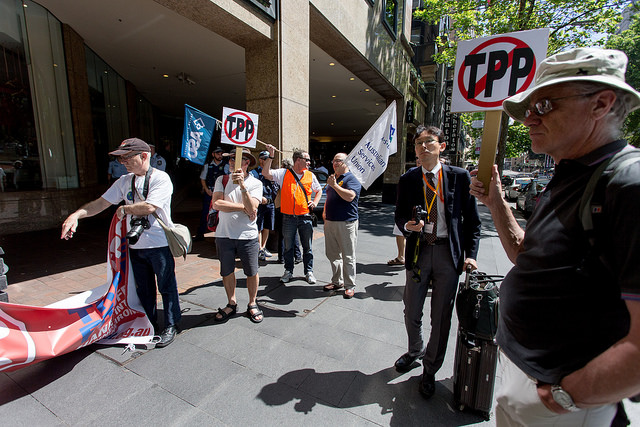
The Trans-Pacific Partnership, a proposed and controversial 12-nation trade pact dealing with everything from intellectual property to human rights, effectively died Friday. Congressional leaders from both parties told the White House they would no longer consider it with a lame duck president, even one who staunchly backed the plan.
Among the reasons the deal was relevant to Ars readers is because of how it treated intellectual property. The TPP exported US copyright law regarding how long a copyright lasts. For signing nations, the plan would have made copyrights last for the life of the creator plus 70 years after his or her death. That's basically the same as in the US.
When the 2,000-page text of the deal was released in November last year—after negotiations were done in secret—the Motion Picture Association of America hailed it. "The TPP reaffirms what we have long understood—that strengthening copyright is integral to America’s creative community and to facilitating legitimate international commerce," Chris Dodd, the MPAA chairman, said.
At one point last year, many feared the TPP would require signing companies to mandate that Internet service providers terminate accounts for Internet copyright scofflaws. That, however, never materialized. In the US, many of the top ISPs have a six-strikes consumer infringement program.
Knowledge Ecology International, which monitors international law, said the measure would have gutted provisions in American law encouraging more transparency of patents on biologic drugs. The group said infringing any patent or copyright could have become more risky and costly.
But what a difference a year makes. Following the victory of Republican Donald Trump, the Senate Majority Leader Mitch McConnell, a Republican of Kentucky, and Sen. Chuck Schumer, a New York Democrat, have said they would not bring up the TPP vote given that President Barack Obama is leaving office in January.
"In terms of the TPP agreement itself, Leader McConnell has spoken to that, and it’s something that he’s going to work with the president-elect to figure out where they go in terms of trade agreements in the future," Wally Adeyemo, Deputy National Security Advisor for International Economic Affairs told The Wall Street Journal late Friday.
The nations in the accord include the US, Japan, Australia, Peru, Malaysia, Vietnam, New Zealand, Chile, Singapore, Canada, Mexico, and Brunei. They represent about 40 percent of the global economy. China has proposed a 16-nation free-trade bloc that includes India.
reader comments
167